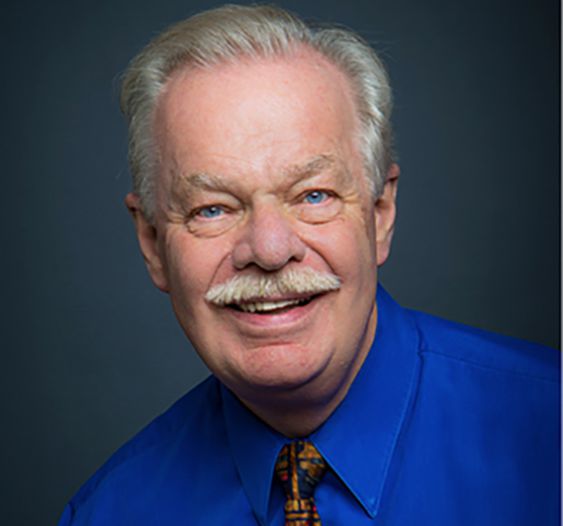Christopher Walker’s compositions are not exactly strangers to papal Masses.
In September 1987, the British composer’s “St. Augustine Gloria” was used in the Mass celebrated with Pope (now St.) John Paul II at Dodger Stadium. Some 28 years later, Walker’s “Laudate, Laudate Dominum” was the gathering song for the canonization Mass of St. Junipero Serra, celebrated Sept. 23 with Pope Francis at the the Basilica of the National Shrine of the Immaculate Conception in Washington, D.C.
And on Oct. 27, “Always Forward, Never Back” — Walker’s newest work, in honor of St. Serra — was premiered at Mission San Carlos Borromeo in Carmel, which had commissioned the song as a processional for its celebration of Serra’s canonization. A similarly-themed celebration on Nov. 21 at Mission San Buenaventura in Ventura also used the song during the presentation of Serra relics.
But it was not the easiest of songs to compose, admits Walker, music director at St. Paul the Apostle Church in Westwood for 26 years, and for three decades among the Church’s best-known composers of contemporary liturgical music (through Oregon Catholic Press).
“I knew I wanted a good tune,” he told The Tidings of composing “Always Forward.” And while liturgy planners at San Carlos Borromeo wanted “a big traditional hymn” with brass and tympani, says Walker, “I wanted this song to be used as a general hymn, not just for one occasion.”
Initially challenged by exactly what to compose and how, he reflected on Father Serra’s words, “Siempre adelante” or “always forward,” which struck him as “a great theme for anyone in ministry.”
And at 7 o’clock one morning, “I woke up, saying, ‘Always forward, never back. Christ companion, guide and goal. Where you lead our steps will follow; love in heart and mind and soul,’” recalled Walker.
In 15 minutes, the refrain text was written, “and then it was a matter of composing the four verses that speak of loyal servants, courage in adversity, faith and witnesses to Christ.”
The song, now being used within the Franciscan community, is appropriate for a hymn of sending forth, for rites of initiation, and “for themes of discipleship, service, witness and evangelization,” says the composer.
Walker was delighted that “Laudate Dominum” — originally composed in 1997 for the ground blessing of Los Angeles’ Cathedral of Our Lady of the Angels — was selected for September’s Papal Mass in Washington.
“What thrilled me most,” he adds, “was seeing two bishops walking in front of Pope Francis, singing the song from memory. That is so rewarding for a composer — to see people, especially clergy, know a song so well that they don’t need the hymnal or worship aid.”
Born in England, Walker directed music at Bristol’s Clifton Cathedral and for the Clifton Diocese, and became affiliated with the St. Thomas More Centre group of composers that included Bernadette Farrell, Paul Inwood, Stephen Dean and Ernest Sands, among others.
A series of OCP recordings in the mid-1980s featuring their music established them in the U.S. and led to Walker becoming a fixture at the Los Angeles Religious Education Congress and other liturgical and music conferences worldwide.
Walker’s songs include “Christ Is Here,” “Take the Word of God with You,” “Out of Darkness” and “The Passion of Christ According to John,” the latter performed annually during Holy Week around the world — including, for the last 10 years, at Mission San Carlos Borromeo.
With Fintan O’Carroll, Walker also co-composed a particularly well-utilized song that, along with many others, contributed to his receiving the 2012 National Pastoral Musicians Association’s Pastoral Musician of the Year Award. In his acceptance address, Walker remarked, tongue in cheek, “I hope my gravestone does not say, ‘Here lies Christopher Walker, known basically for composing the ‘Celtic Alleluia.’”
Having in years past written music filled with syncopations, meter changes and sudden chord progressions, Walker notes that, “over the years, my music has become simpler. Some might say it’s lost its ‘Walker character,’ but I think it’s also more singable.”
His composing process, however, remains the same.
“Every time I sit down at a piano with a blank sheet of paper,” Walker says, with a bit of amazement, “I can’t believe that in a few hours, it’s going to be filled with notes and chords and text. It’s a mystery to me how that happens.
“But I think about what the great [Renaissance era] British composer William Byrd once said: ‘Get me to a quiet place.’ I do that, and I pray, and I say the words, and the music comes along. If it’s truly meant to be sung, I close my eyes, I picture the people in my choir, and I say, ‘Sing this to me,’ and I write it down. That helps me.”

